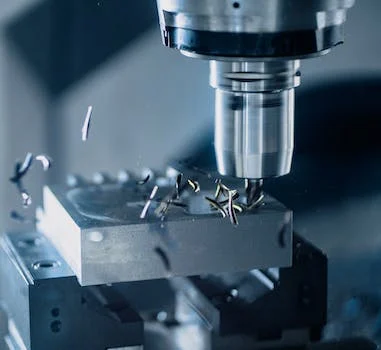Introduction to CNC Manufacturing
CNC manufacturing, short for Computer Numerical Control manufacturing, plays a pivotal role in today’s industries. This technology uses computers to control machinery, including lathes, mills, routers, and grinders. It’s a game-changer in the manufacturing world, offering high precision, efficiency, and repeatability. With CNC machines, manufacturers can produce complex and intricate parts with minimal manual intervention. It’s an essential tool in various sectors, from automotive to aerospace, healthcare, and beyond. So, whether it’s creating car parts, airplane components, or medical devices, CNC manufacturing ensures accuracy, speed, and consistency in production.
Understanding the Basics of CNC Machines
CNC or Computer Numerical Control machines are integral to modern manufacturing processes. They use computer-aided design (CAD) and computer-aided manufacturing (CAM) software to automate and control machine tools. This automation allows for precise, consistent, and rapid production of complex and high-quality parts. It’s easy to see why CNC machines are pivotal in today’s industries. From aerospace and automotive to healthcare and construction, CNC manufacturing is used to produce a vast array of products. The technology’s precision and speed not only increase productivity but also reduce waste and costs, making it an essential tool in the competitive world of manufacturing.
The Evolution of CNC Manufacturing Over the Years
CNC (Computer Numerical Control) manufacturing has significantly evolved over the years, transforming the landscape of various industries. In the early days, manufacturing processes were manual, time-consuming, and prone to errors. However, with the introduction of CNC technology in the 1940s, precision, efficiency, and productivity dramatically improved. This technology enabled machines to be controlled by pre-programmed software, eliminating the need for manual operation. Over time, advancements in computer processing power and software capabilities have made CNC machines more sophisticated and versatile. Today, CNC manufacturing plays a crucial role in industries like automotive, aerospace, and electronics, producing complex and high-quality parts with speed and accuracy.
The Role of CNC Manufacturing in Automotive Industry
CNC manufacturing plays a pivotal role in the automotive industry. It’s used to produce car parts with high precision and consistency, ensuring every part fits perfectly for smooth vehicle performance. By programming machines to automate cutting, drilling, and shaping tasks, CNC manufacturing reduces errors, boosts efficiency, and accelerates production time. This technology also supports the creation of complex and intricate designs that would be difficult to achieve manually. Therefore, CNC manufacturing is a critical component in the production of modern vehicles, contributing significantly to the industry’s ongoing growth and innovation.

Application of CNC Manufacturing in Aerospace and Defense Industry
CNC (Computer Numerical Control) manufacturing has become crucial in the aerospace and defense industry. The high precision and accuracy offered by CNC machines are ideal for producing intricate parts required in aircraft and defense equipment. CNC manufacturing allows for the mass production of these components with consistent quality, reducing the margin for error and increasing overall production efficiency. This technology also provides the flexibility to modify designs swiftly, which is essential in these rapidly evolving industries. Therefore, CNC manufacturing plays a pivotal role in ensuring the reliability and performance of aerospace and defense equipment.
CNC Manufacturing in the Medical Industry: A Game Changer
CNC manufacturing has revolutionized the medical industry, proving to be a real game changer. The precision and accuracy offered by CNC machines have significantly improved the production of medical devices and equipment. From creating intricate components of surgical instruments to manufacturing custom prosthetics and dental implants, CNC technology has enhanced the quality and efficiency of medical production. This has not only resulted in better patient care but also increased the speed of medical procedures, saving countless lives. Therefore, the role of CNC manufacturing in the medical industry is undeniable and continues to be crucial for further advancements.
How CNC Manufacturing is Revolutionizing the Electronics Industry
CNC (Computer Numerical Control) manufacturing is reshaping the electronics industry in groundbreaking ways. With its high precision, speed, and versatility, CNC machines can create complex and intricate parts that are beyond the scope of manual machining. This ability to produce intricate parts in large volumes has accelerated product development and reduced production costs in the electronics industry. It has also improved consistency and quality of products, as CNC machines can reproduce parts with exact precision, eliminating human error. Thus, CNC manufacturing is playing a pivotal role in the growth and advancement of the electronics industry.

The Impact of CNC Manufacturing on Job Creation and Economy
CNC (Computer Numerical Control) manufacturing plays a significant role in job creation and boosting the economy. It has revolutionized the manufacturing sector by automating complex tasks, resulting in increased efficiency and productivity. This automation doesn’t eliminate jobs; instead, it creates new opportunities for skilled workers, such as CNC operators, programmers, and engineers. These positions offer competitive wages, contributing to economic growth. Moreover, CNC manufacturing allows businesses to produce high-quality products at a lower cost, encouraging domestic production and reducing reliance on imports. This not only keeps money within the local economy but also promotes industry growth and job creation.
Future Trends: The Integration of AI and Robotics in CNC Manufacturing
As we look towards the future of CNC manufacturing, the integration of AI and Robotics is a trend that cannot be ignored. With AI, we can automate complex tasks and make our manufacturing processes more efficient. This technology can analyze data, predict outcomes, and make decisions, all of which are crucial in manufacturing. On the other hand, Robotics can be used for tasks that are difficult for humans, such as lifting heavy items or performing repetitive tasks. The integration of AI and Robotics in CNC manufacturing will not only increase productivity but also improve product quality and reduce production costs, taking the industry to new heights.
Conclusion: The Continued Importance of CNC Manufacturing in Today’s Industries.
In conclusion, CNC manufacturing remains a critical component in today’s industries. Its role in precision, efficiency, and consistency in production cannot be overstated. The ability to produce complex and intricate parts with high accuracy makes it indispensable in sectors like automotive, aerospace, and healthcare, among others. As industries continue to evolve and demand for precision and speed increases, the importance of CNC manufacturing will only grow. It is a powerful tool that enables industries to meet their production goals while maintaining high-quality standards.

0 Comments